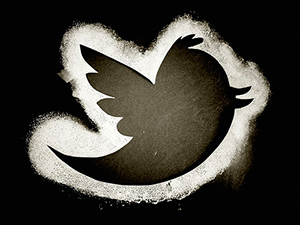Twitter Wants to Be More Like Facebook
The cute little communicator that helped topple Hosni Mubarak is reportedly so focused on advertising dollars that it plans to impose severe restrictions on third-party partners. Essentially, Twitter wants to have more control over users so it can have more control over how they see ads.
The cute little communicator that helped topple Hosni Mubarak is reportedly so focused on advertising dollars that it plans to impose severe restrictions on third-party partners. Essentially, Twitter wants to have more control over users so it can have more control over how they see ads.
Currently, many Twitter users engage with the service using alternative apps like TweetDeck that provide their own unique features, rather than logging on to Twitter.com. That may soon change.
Mark Suster, a venture capitalist quoted by The Verge, says, “Twitter wants to be a media company, like Facebook, and it believes the best way to do that is to tightly control when and where people can access its content.” But “its content” is your content, assuming you’re one of the more than 500 million active users providing 100 percent of that media.
Ultimately it’s an important reminder that many of the communication platforms powering informative, frank and subversive conversation are owned by private companies that want, more than anything, to make money. They may start out, like Twitter, a refreshing alternative to the social strip-miners at Facebook, but eventually it’s about dollar dollar bills, y’all.
— Posted by Peter Z. Scheer
Your support matters…The Verge:
Twitter won’t become a walled garden disconnected to the open web. But the company leadership does believe the best way to attract big brand advertisers and create meaningful revenue is to adopt a closed ecosystem, similar to Facebook, in which users access the service mainly through the company’s website and mobile apps, rather than third party clients. The company doesn’t want to deal with fragmentation across different services, where it would have to work with API partners to ensure advertising and rich media was being properly displayed. This would become increasingly challenging, as sources familiar with Twitter’s plans say that it’s hoping to bring a number of new services into the Twitter stream, everything from booking a restaurant reservation to purchasing an item to playing a game.
For developers building on top of Twitter’s API, which the company has long maintained will be an “open platform”, this amounts to a betrayal, on both a commercial and philosophical level. “Twitter has become a critical piece of our communications infrastructure by making promises about how they would operate,” said Nova Spivack, creator of Bottlenose, a social dashboard that relies on the Twitter API. “The question now is whether they will continue to be responsible stewards of our data and that ecosystem, or if they are going to abandon that if favor of a closed business.”
Independent journalism is under threat and overshadowed by heavily funded mainstream media.
You can help level the playing field. Become a member.
Your tax-deductible contribution keeps us digging beneath the headlines to give you thought-provoking, investigative reporting and analysis that unearths what's really happening- without compromise.
Give today to support our courageous, independent journalists.






You need to be a supporter to comment.
There are currently no responses to this article.
Be the first to respond.